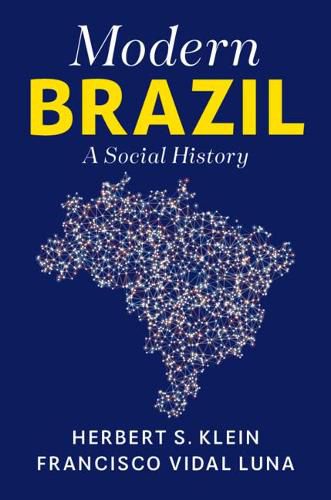Readings Newsletter
Become a Readings Member to make your shopping experience even easier.
Sign in or sign up for free!
You’re not far away from qualifying for FREE standard shipping within Australia
You’ve qualified for FREE standard shipping within Australia
The cart is loading…






Herbert S. Klein and Francisco Vidal Luna present a sweeping narrative of social change in Brazil that documents its transition from a predominantly rural and illiterate society in 1950, to an overwhelmingly urban, modern, and literate society in the twenty-first century. Tracing this radical evolution reveals how industrialization created a new labor force, how demographic shifts reorganized the family and social attitudes, and how urban life emerged in what is now one of the most important industrial economies in the world. A paradigm for modern social histories, the book also examines changes in social stratification and mobility, the decline of regional disparities, education, social welfare, race, and gender. By analyzing Brazil’s unprecedented political, economic, and social changes in the late twentieth and twenty-first century, the authors address an under-explored area in current scholarship and offer an invaluable resource for scholars of Latin American and Brazil.
$9.00 standard shipping within Australia
FREE standard shipping within Australia for orders over $100.00
Express & International shipping calculated at checkout
Herbert S. Klein and Francisco Vidal Luna present a sweeping narrative of social change in Brazil that documents its transition from a predominantly rural and illiterate society in 1950, to an overwhelmingly urban, modern, and literate society in the twenty-first century. Tracing this radical evolution reveals how industrialization created a new labor force, how demographic shifts reorganized the family and social attitudes, and how urban life emerged in what is now one of the most important industrial economies in the world. A paradigm for modern social histories, the book also examines changes in social stratification and mobility, the decline of regional disparities, education, social welfare, race, and gender. By analyzing Brazil’s unprecedented political, economic, and social changes in the late twentieth and twenty-first century, the authors address an under-explored area in current scholarship and offer an invaluable resource for scholars of Latin American and Brazil.